Sexual orientation
The organisation is closest to the community representation of this protected characteristic than any other we have reported on. In the South-East 89.8% of the population identify as heterosexual, 1.49% Gay or lesbian, 1.29% bisexual, 0.2% pansexual, 0.06% asexual, 0.03% queer 0.02% as another orientation (Census, 2021).
Research by the Equality and Human Rights Commission identified there is a lack of evidence on the effects of sexual orientation on pay to draw firm conclusions. In part this is due to the lack of data on sexual orientation in national datasets. Improving disclosure is important to us, not only in terms of figures but also in the organisational culture it promotes.
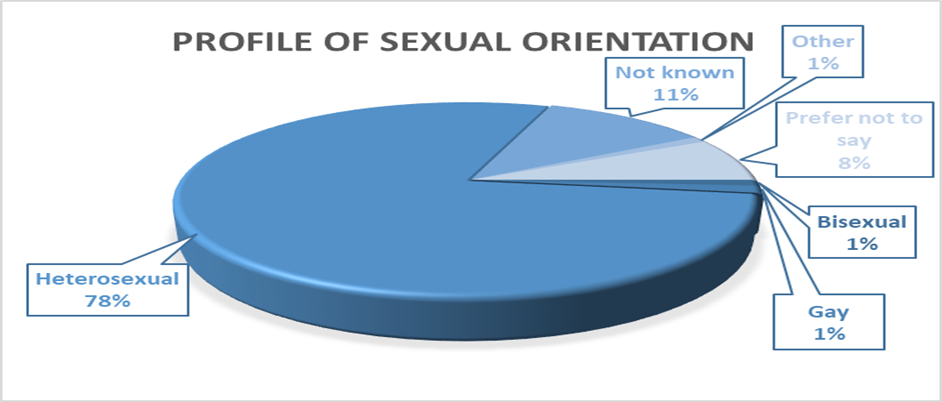
Mean and median LGB+ pay gaps


Compared to 2021 people who identify across the LGB+ spectrum receive £0.33 more that the rate of pay received by people who identify as heterosexual equating to a mean pay gap of 1.8%. The median pay gap indicates that at the mid salary point of the service there continues to be no LGB+ pay gap.
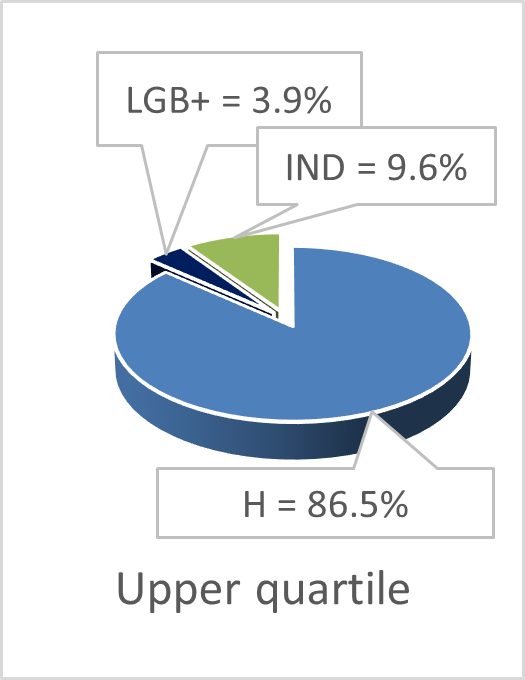
|
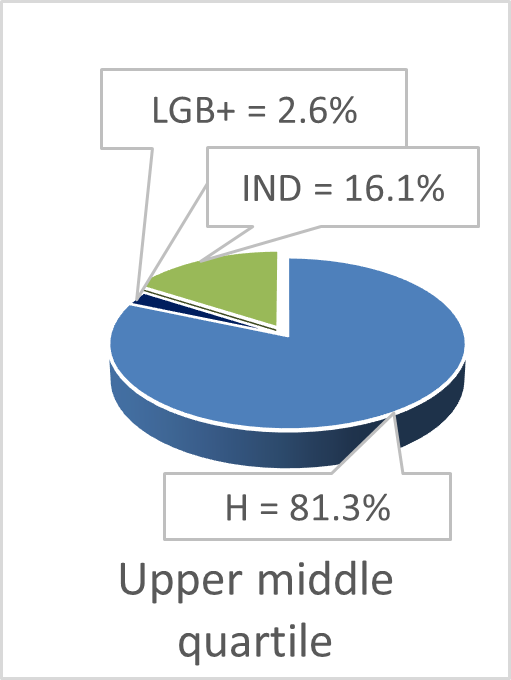
|
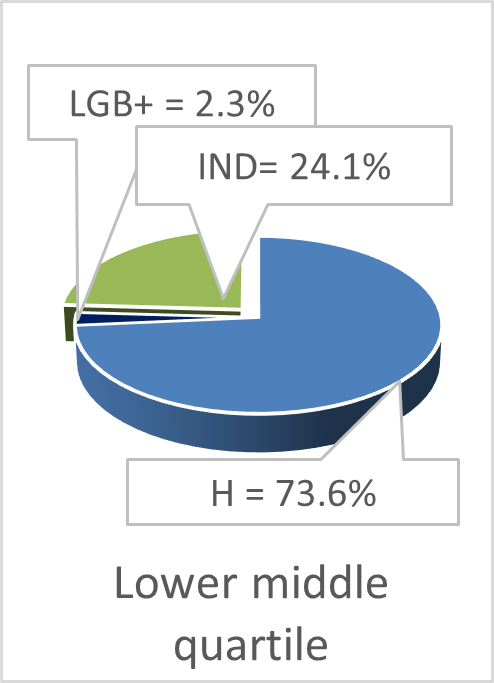
|
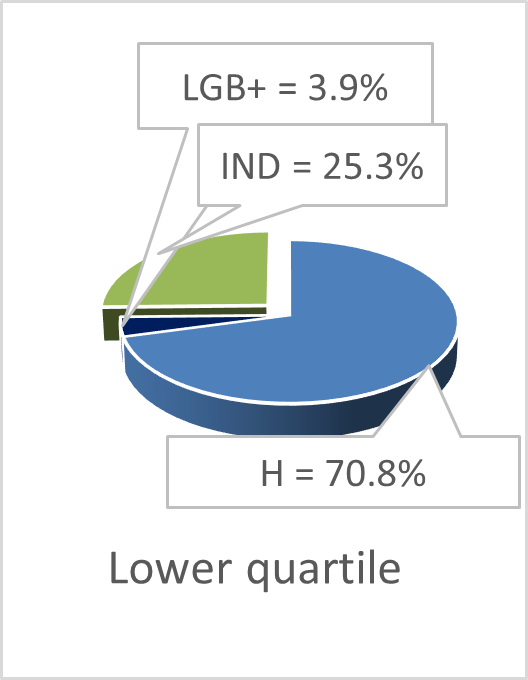
|
Key: LGB+ = Sexual Orientation not heterosexual H = Heterosexual IND = Identity not disclosed
Sexual orientation disclosure follows the same pattern as disability and ethnicity across the quartiles. The higher pay band the more likely people are to disclose their identity. LGB+ progression has occurred to the upper middle quartile; however, this leaves more to be done in the lower middle quartile to protect the talent pipeline.